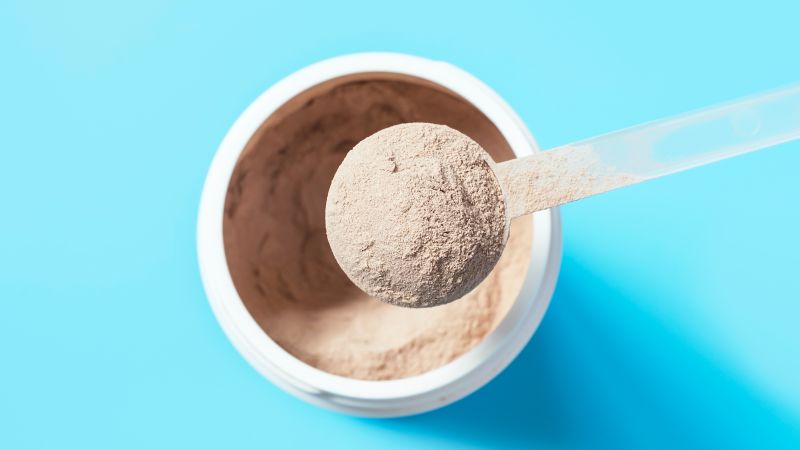Over-the-counter protein powders may contain disturbing levels of lead and cadmium, according to a new investigation. The report, released by the Clean Label Project, found that the highest amounts of these heavy metals were found in plant-based, organic, and chocolate-flavored products.
There is no level of lead that is safe for humans, according to the US Environmental Protection Agency. Cadmium is a carcinogen that is also toxic to the body’s heart, kidneys, gut, brain, respiratory, and reproductive systems, according to the US Department of Labor’s Occupational Safety and Health Administration.
The investigation found that on average, organic protein powders had three times more lead and twice the amount of cadmium compared to non-organic products. Plant-based powders, such as those made from soy, rice, peas, and other plants, contained three times more lead than whey-based products.
The report also found that chocolate flavoring was a key source of contamination in protein powders. Chocolate-flavored protein powders contained four times more lead and up to 110 times more cadmium than vanilla-flavored powders.
The Clean Label Project purchased 160 products from 70 of the best-selling brands of protein powders and sent them to an independent certified laboratory for testing. The laboratory ran nearly 36,000 individual tests on 258 different contaminants, including heavy metals, bisphenols, phthalates, and perfluoroalkyl and polyfluoroalkyl substances, or PFAS.
The report found that 47% of the 160 protein powder samples tested exceeded California’s Proposition 65 regulatory guidelines for lead and cadmium. About 21% of the powders contained levels twice as high as the Prop 65 limit.
The investigation also found that bisphenols, hormone disruptors linked to a range of health problems, were present in some protein powders. However, the report noted that the levels of bisphenols were significantly lower than in a similar investigation in 2018.
To reduce exposure to heavy metals, the Clean Label Project recommends shopping smart and choosing protein powders made from peas or whey. Consumers can also reach out to their favorite brands to inquire about contaminant levels.
“It’s not necessary to stop using protein powders as part of a healthy lifestyle, but it does help to shop smart,” said Jaclyn Bowen, executive director of the Clean Label Project. “Ask questions, demand answers. The topic of heavy metals isn’t going away.”

